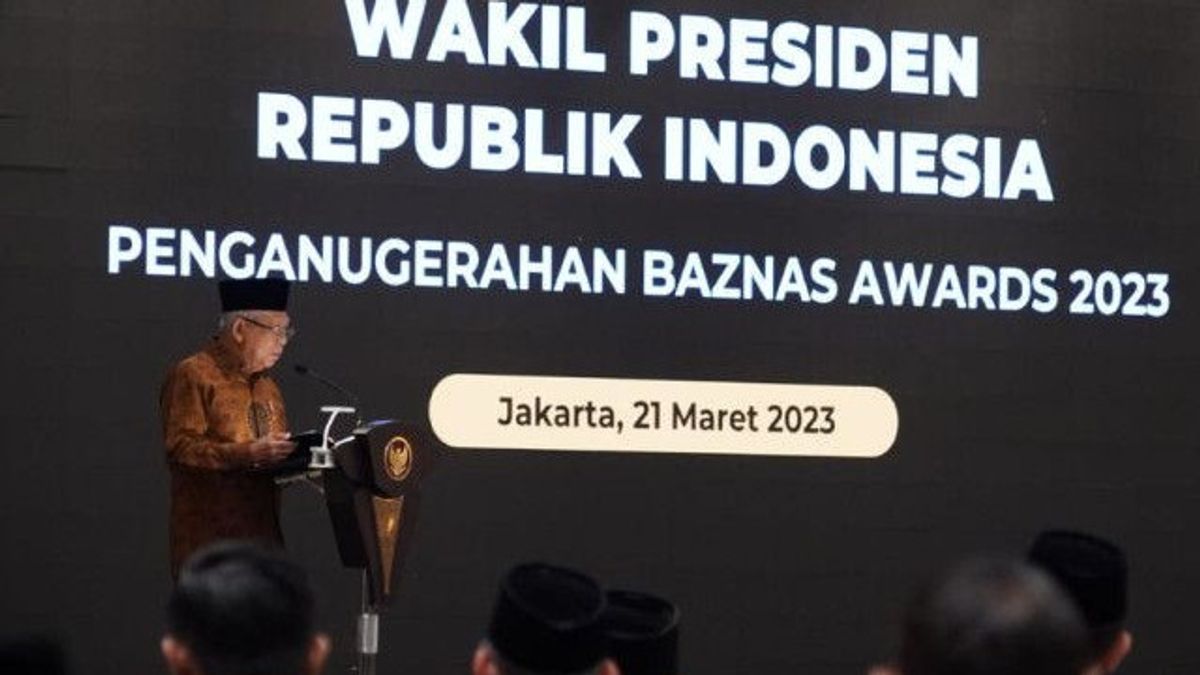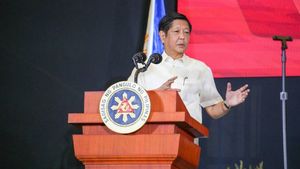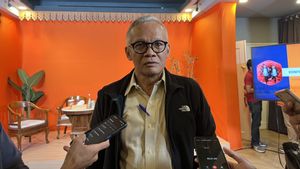JAKARTA - Indonesian Vice President Ma'ruf Amin asked for increased competency certification of zakat amil in order to increase the trust of muzaki or zakat givers in professional zakat management.
"In order to develop a strengthening strategy from each component of the zakat ecosystem, one of which I ask for a certification of the amil zakat competence so that it continues to be reproduced. As the main component of the zakat ecosystem, this certification will increase muzaki's trust because the zakat funds are managed by professional parties," said the Vice President, quoted by ANTARA, Tuesday, March 21.
This zakat amil competency certification, according to the Vice President, is one of the efforts that can be made to strengthen the zakat ecosystem, which is included in the criteria for developing strategies to strengthen the national zakat ecosystem through mapping the potential strength and challenges of each component of the zakat ecosystem.
In addition, he also asked the Baznas Award 2023, as part of efforts to strengthen the foundation of the national zakat ecosystem, not to stop at an appreciation for stakeholders who support and encourage the revival of zakat in the country.
He emphasized that the recipients of the Baznas Award consisting of officials, community leaders, public figures, the ulama of the muzaki, mustahik, amil zakat institutions, local governments to media circles, were none other than the main elements and components and supporting components of the zakat ecosystem itself.
For this reason, the continuation of the roles of the Baznas Award recipients, he said, must be maintained and used as a pilot to be imitated by other parties.
Furthermore, the Vice President asked for collaboration and program synergy with relevant stakeholders. He received a report that Baznas had signed a memorandum of understanding with the National Committee for Sharia Economics and Finance (KNEKS) to collaborate to develop the ecosystem and performance of national zakat.
The Vice President considered this to be the right step. "I ask for strategic and collaborative programs that really strengthen each element of the national zakat system to be mapped and prepared immediately," he asked.
He asked for programs that have been running with KNEKS to continue, such as the integration of zakat reporting based on the Baznas information system. He assessed that the use of data and digitization is very important for strengthening components supporting the zakat ecosystem.
The Vice President further stated that the government has committed to encouraging the implementation of zakat through KNEKS.
As is known, KNEKS has four main targets, namely developing the halal industry; developing the Islamic financial industry; developing Islamic social funds in the form of waqf, zakat, infaq, alms; and empowering or developing sharia-based business businesses.
"Therefore, KNEKS, which is indeed part of an institution formed by the government chaired by the President and Vice Chairman and the Daily Chair, the Vice President, his secretary the Minister of Finance, his members the four Coordinating Ministers and eight related ministers, have an interest in developing four main targets and including the development of zakat," explained the Vice President.
The English, Chinese, Japanese, Arabic, and French versions are automatically generated by the AI. So there may still be inaccuracies in translating, please always see Indonesian as our main language. (system supported by DigitalSiber.id)












